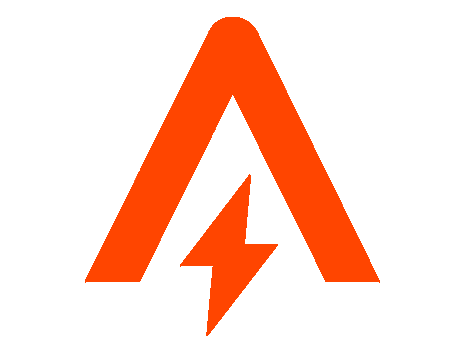Designing the Optimal High-Protein Muscle-Building Diet

Bulking up and adding significant muscle mass is no easy task. It involves a comprehensive strategy that includes smart nutrition, progressive strength training, and sufficient recovery. Many individuals struggle with the dietary component, which is crucial for muscle building.
Consuming enough calories is important, but ensuring adequate protein intake is essential to maximize muscle growth. Protein provides the amino acid building blocks necessary for muscle development, so even intense workouts like squats and bench presses won’t lead to substantial gains without it. Therefore, creating a high-protein diet tailored to your goals is vital if you aim to become as muscular as possible.
This in-depth guide covers everything you need to know about harnessing the muscle-building power of protein. You’ll learn about optimal daily protein goals based on your weight and activity level, as well as the best whole food sources to incorporate into your diet. You’ll also gain insights into the best times to consume protein around workouts for improved absorption and increased muscle growth. If you’re aiming for significant mass gains, continue reading to find out how a high-protein diet can fuel rapid increases in strength and size.
Why Protein is Essential for Building Muscle
Among the three macronutrients, dietary protein offers unique benefits specifically geared toward muscle growth:
- Protein Synthesis: Protein provides the amino acids needed to continuously generate new muscle proteins, enhancing the rate of muscle protein synthesis for accelerated growth.
- Muscle Repair: Intense workouts create small tears in muscle tissues. Protein consumption helps repair these tears, resulting in larger muscles.
- Hormone Production: Amino acids help produce key hormones like testosterone and IGF-1, which boost protein synthesis and promote more significant muscle growth.
Muscle growth occurs alongside adequate protein intake. But how much protein is necessary?
Daily Protein Intake Guidelines
Your ideal daily protein intake depends on your weight, training intensity, and personal goals. Here are some general suggestions:
- Sedentary Individuals: Consume 0.8 grams of protein per kilogram of body weight, equivalent to about 0.35 grams per pound. This translates to approximately 56 grams a day for men and 46 grams a day for women.
- Endurance Athletes: 1.2-1.4 grams of protein per kilogram, or about 0.5 to 0.6 grams per pound, to meet metabolic demands.
- Resistance Trainers: To preserve and build muscle, intake should be 1.6-2.2 grams per kilogram, or approximately 0.7-1 gram per pound.
- Aggressive Muscle Building: Consuming up to 2.2 grams per kilogram, or 1 gram per pound, guarantees an abundance of amino acids for muscle growth and repair.
For example, a 175-pound male striving to build muscle should aim for around 175 grams of protein daily, using food measurement and tracking to meet daily goals. Timing protein consumption appropriately is also crucial.
Best Practices for Timing Protein Intake
In addition to meeting daily protein targets, strategically timing your meals around workouts can further optimize muscle building:
- Pre-Workout: Taking in 20-40 grams of protein an hour before exercising maintains amino acid levels and helps reduce muscle breakdown during training.
- Post-Workout: Consuming another 20-40 grams immediately after exercising aids in recovery and growth by capitalizing on increased nutrient sensitivity and absorption.
- Before Bed: Eating 30-50 grams of slow-digesting protein before sleep provides continual delivery of amino acids throughout the night, as muscle protein synthesis peaks during rest.
Implementing a pre-, intra-, and post-workout protein regimen keeps muscles sufficiently fueled, preparing your body for quick gains in size and strength.
Top High-Protein Food Choices
Include a variety of lean, complete protein sources in your diet, such as:
- Lean Beef and Lamb: Both are rich in leucine, an important muscle-building amino acid, and provide essential nutrients like iron, zinc, and B vitamins. Aim for 90/10 ground beef and flank steak.
- Skinless Chicken and Turkey: These low-calorie poultry options are very versatile and can be paired with carbohydrates like rice and vegetables.
- Fish and Seafood: Salmon, tuna, cod, and tilapia offer more than 20 grams of protein per 3-ounce serving and also contain anti-inflammatory omega-3 fatty acids.
- Eggs and Whites: High in BCAAs, they support muscle repair and growth. Consider hard-boiling eggs for convenience.
- Greek Yogurt: A great source of complete protein, delivering 23 grams per cup, along with probiotics that aid digestion and immunity.
- Cottage Cheese: Contains slow-digesting casein protein that provides overnight amino acid release, perfect for nighttime consumption. Choose low-fat varieties whenever possible.
- Protein Powder: Whey and casein supplements deliver a fast-absorbing, slow-releasing blend that complements whole food protein sources.
Combining different protein sources from meat, dairy, and other foods in your meals and snacks helps in meeting your daily protein targets more easily.
[Image: Selection of high-protein foods such as Greek yogurt, eggs, salmon, and chicken]
Sample High-Protein Meal Plan
To put these tips into practice, here’s an example of a high-protein diet plan that provides roughly 200 grams of muscle-building protein:
-
7 am – Pre-Workout
- 3 whole eggs + 3 egg whites
- 1 cup oatmeal
- 1 cup blueberries
Provides approximately 40 grams of protein.
-
9:30 am – Post-Workout
- Protein shake
- 1 large banana
Provides approximately 35 grams of protein.
-
Noon – Lunch
- 8 oz chicken breast
- 1 cup brown rice
- 1 cup mixed vegetables
Provides approximately 50 grams of protein.
-
3 pm – Snack
- Greek yogurt protein parfait
- 30 almonds
Provides approximately 20 grams of protein.
-
6 pm – Dinner
- 8 oz flank steak
- Sweet potato
- 1 cup broccoli
Provides approximately 45 grams of protein.
-
9 pm – Before Bed
- Casein protein shake
- 1 tbsp peanut butter
Provides approximately 25 grams of protein.
To build a powerful, muscular physique, it’s crucial to consume an appropriate amount of protein daily for muscle growth. Aim for 0.7-1 gram of protein per pound of body weight by relying on whole foods such as meats, dairy, eggs, and protein powders. For expert advice on protein intake and timing, consult resources at Broscience. Timing 20-40 grams of protein around workouts primes muscles for growth. Monitor your macronutrient intake to fine-tune your approach over time.
With a high-protein diet supporting your training, prepare to receive compliments on your muscular appearance. Stock up on chicken, Greek yogurt, cottage cheese, protein supplements, and more. Just remember to moderate protein intake, as excessive amounts can strain the kidneys. Strategically include high-protein foods in your meal plan, and maintain your daily macronutrient goals for more rapid muscle development.
The key takeaway is that building an imposing physique is nearly impossible without consistent, high-quality protein consumption. Give your body the nutrients it requires, and watch as significant muscle gains take shape. Implement this protein strategy in your diet plan to complement your muscle-building workouts, and prepare for impressive increases in size and strength.



